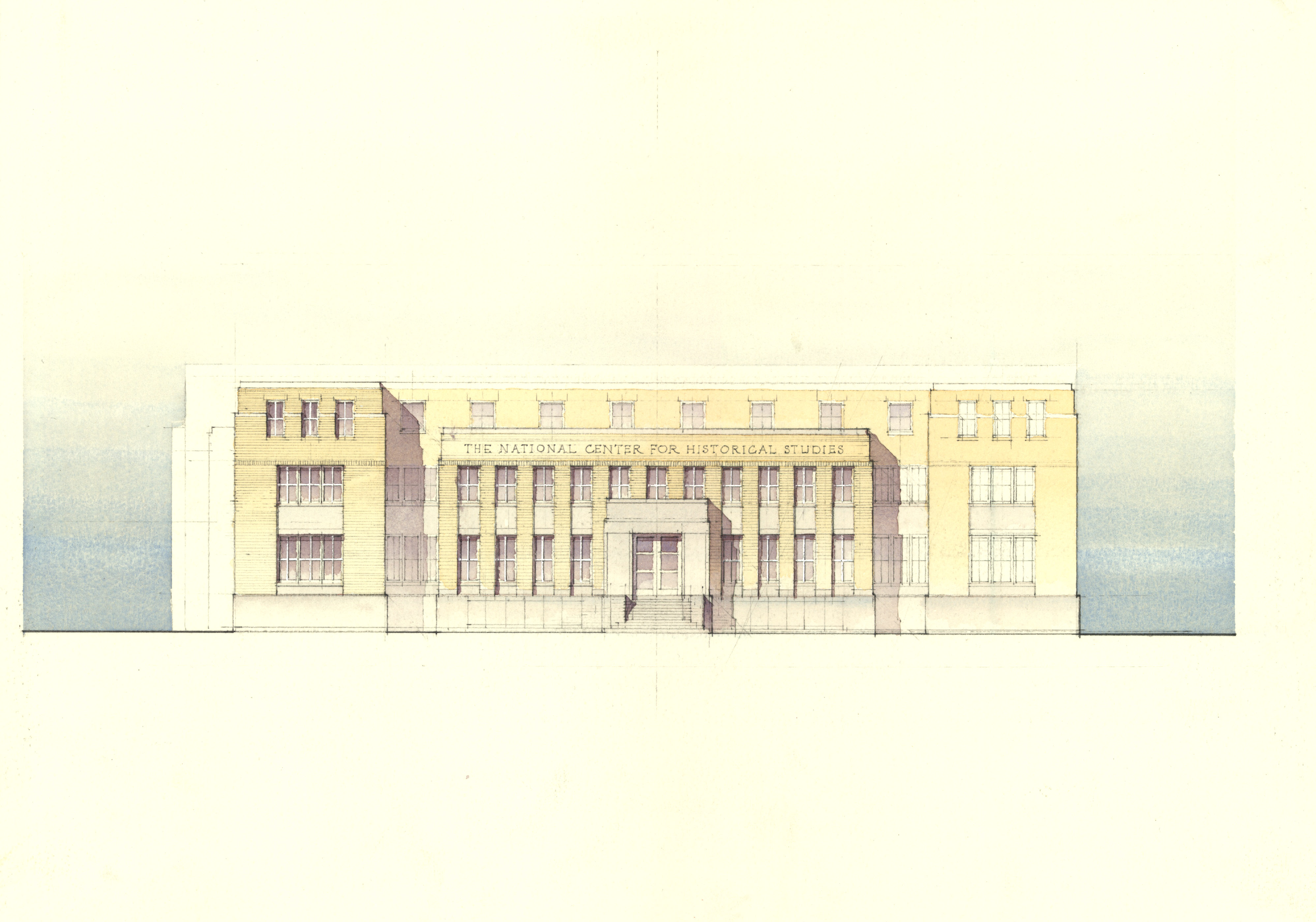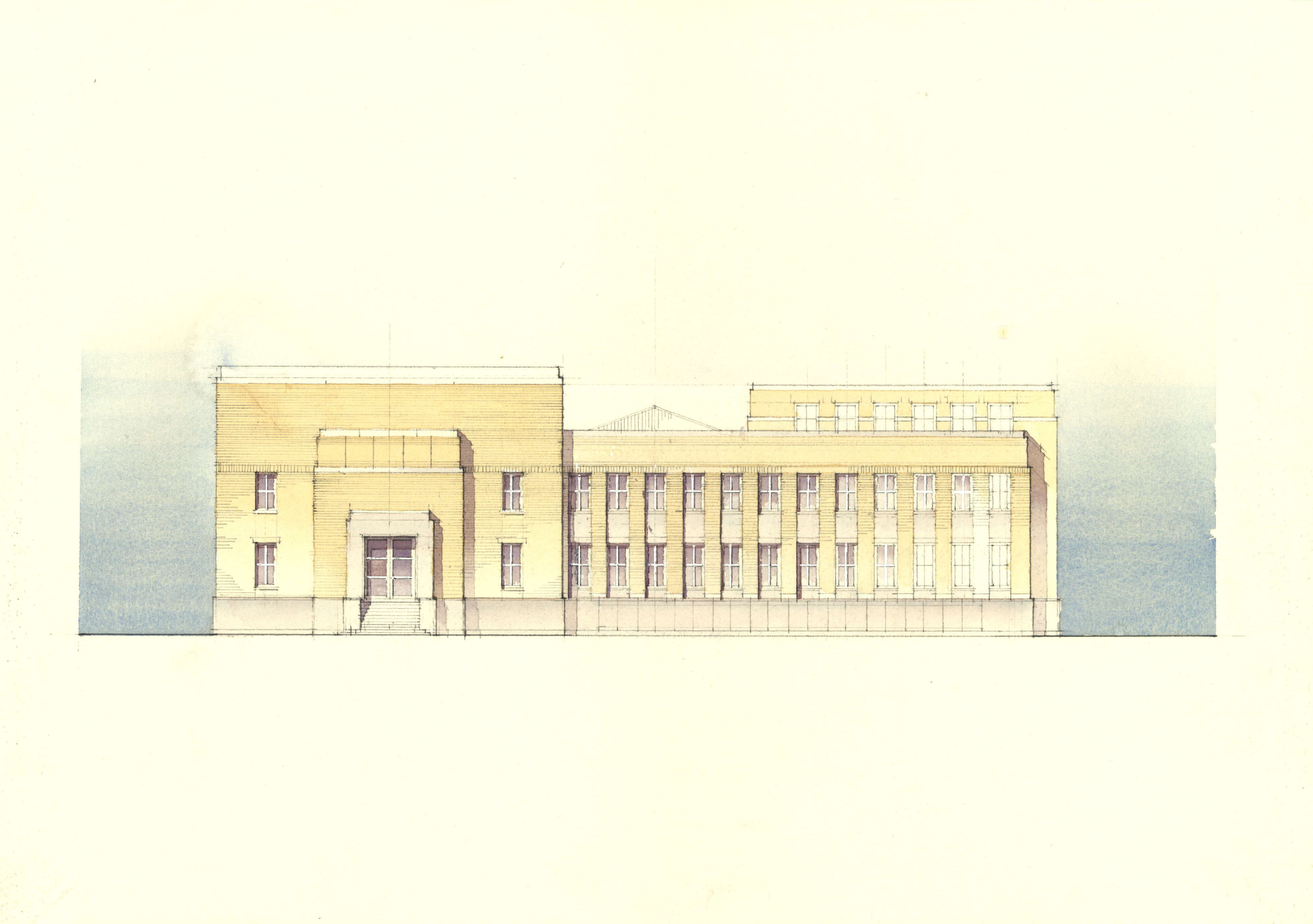 The American Historical Association, I have discovered, moves at a majestic pace. About a year and a half ago we learned that a Library of Congress building, the former St. Cecilia School, might be available for a National Center for Historical Studies. It took us about a year to clarify our purpose and to form a consensus that the center would be a good thing. It took us another six months or so to find an architect to plan for the renovation of the building, and a professional fund-raiser to guide us on how to find the money for the endowment of the center as well as the refurbishing. In view of the glacial speed at which AHA committees usually proceed, I regard this as remarkable and satisfactory progress. The architects are George Hartman and Alexander Zaras. George Hartman's name will be familiar to many readers as the architect who has redesigned and refurbished historic buildings in Washington and throughout the country. To Alexander Zaras, another distinguished architect, we owe the present sketch or artist's vision of the center.
The American Historical Association, I have discovered, moves at a majestic pace. About a year and a half ago we learned that a Library of Congress building, the former St. Cecilia School, might be available for a National Center for Historical Studies. It took us about a year to clarify our purpose and to form a consensus that the center would be a good thing. It took us another six months or so to find an architect to plan for the renovation of the building, and a professional fund-raiser to guide us on how to find the money for the endowment of the center as well as the refurbishing. In view of the glacial speed at which AHA committees usually proceed, I regard this as remarkable and satisfactory progress. The architects are George Hartman and Alexander Zaras. George Hartman's name will be familiar to many readers as the architect who has redesigned and refurbished historic buildings in Washington and throughout the country. To Alexander Zaras, another distinguished architect, we owe the present sketch or artist's vision of the center.
If we succeed, the creation of a National Center for Historical Studies will be a triumph for the AHA, though the center would be legally and financially separate from the AHA. For over a hundred years historians have urged the founding of such a center in our nation's capital to carry forward the AHA's mission in research and education. But I must say at once that establishing the center is not going to be easy. The estimate for refurbishing the building is $12.5 million. To get the center up and running, we would need another $12.5 million, which would already bring the total to $25 million. To have it properly endowed would take another $25 million. In other words we are talking about $50 million, a sum sufficient to take anyone's breath away. To provide the endowment, we will need to find a public-spirited wealthy American-or several of them-who believes in the value of history in our national life. We have enlisted Michael Worth, a professional fund-raiser with a proven track record on similar projects, to assist us, and we have received a grant from the Carnegie Corporation to move forward at the initial stage. I have talked extensively to people within the fundraising and financial community as well as with many historians, and I believe that, with persistence and luck, it can be done.
 The building is at 6th and East Capitol Streets, about a block and a half from AHA headquarters and about five minutes walk from the Library of Congress. To restate the essential purpose, the National Center for Historical Studies will differ from all other comparable institutions by being devoted solely to history-history at all times and in all parts of the world. Each year the center will sponsor a dozen fellows, who will again differ from those at other institutions by participating in a weekly seminar that will be broadcast or televised throughout the country, indeed the world, and thereby bring historical debate to a large public audience. The center will be a place for lectures, conferences, and training programs (for example, for high-school history teachers wanting to get up to speed with state-of-the-art technology). It will provide a base for all historians who might be in Washington for whatever purpose, not least historians visiting this country from abroad. Research will be conducted by the fellows who will represent, to some extent, the constituencies of the AHA, but the center's purpose goes beyond that of a think-tank. It will not be elitist but broadly based, and open to graduate students as well as historians of all ranks, and public historians as well as those who teach in our schools and universities. Historians will have a place in Washington to call their own, to use a computer for e-mail, to have a cup of coffee or lunch, in short to meet other historians informally as well as in the seminars and lectures. The National Center for Historical Studies will fulfill a need that has existed for many decades.
The building is at 6th and East Capitol Streets, about a block and a half from AHA headquarters and about five minutes walk from the Library of Congress. To restate the essential purpose, the National Center for Historical Studies will differ from all other comparable institutions by being devoted solely to history-history at all times and in all parts of the world. Each year the center will sponsor a dozen fellows, who will again differ from those at other institutions by participating in a weekly seminar that will be broadcast or televised throughout the country, indeed the world, and thereby bring historical debate to a large public audience. The center will be a place for lectures, conferences, and training programs (for example, for high-school history teachers wanting to get up to speed with state-of-the-art technology). It will provide a base for all historians who might be in Washington for whatever purpose, not least historians visiting this country from abroad. Research will be conducted by the fellows who will represent, to some extent, the constituencies of the AHA, but the center's purpose goes beyond that of a think-tank. It will not be elitist but broadly based, and open to graduate students as well as historians of all ranks, and public historians as well as those who teach in our schools and universities. Historians will have a place in Washington to call their own, to use a computer for e-mail, to have a cup of coffee or lunch, in short to meet other historians informally as well as in the seminars and lectures. The National Center for Historical Studies will fulfill a need that has existed for many decades.
I have been told that as a consequence of the events of September 11 our prospects are slim. People now give money to the Red Cross and other medical and relief charities. No doubt the public's attention is so focused, and this is admirable. But I believe also that the attacks of September 11 have caused us to reflect on things we cherish, and that the vision of a National Center for Historical Studies will have an appeal to those who regard the study of history-including public debate about its meaning in present-day circumstances-as an essential part of our democracy. Such are the aims. They have a certain urgency because the building will not be available forever. We must move forward deliberately and energetically. When I am asked to be entirely candid about our chances of raising the money and making the center a reality, I have to say that it is a huge gamble. But it is a vision worthy of our time and our profession. I for one shall do all I can to make the venture a success.
Wm. Roger Louis (Univ. of Texas at Austin) is president of the AHA.
Tags: From the National History Center From the President AHA Leadership
Comment
Please read our commenting and letters policy before submitting.






